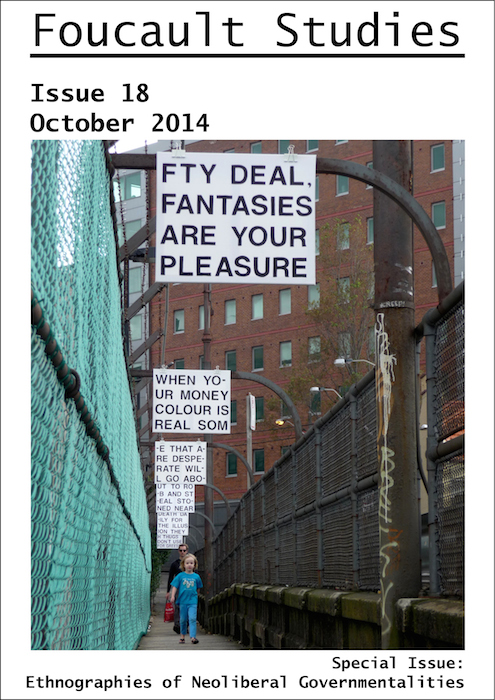Spotting the Primacy of Resistance in the Virtual Encounter of Foucault and Deleuze
DOI:
https://doi.org/10.22439/fs.v0i18.4660Nøgleord:
Resistance, active forces, power relations, Deleuze, labour, TrontiResumé
Foucault’s intuition that resistance comes first challenges the theses of the co-originality of power and resistance or the superiority of power over resistance. In order to transform this intuition into the concept of the primacy of resistance, the article uses Deleuze’s ontology and in particular the idea of the virtual. According to Deleuze, resistance displays a privileged relation with the virtual, understood as the ontological region animated by all the potentialities that might be or might have been actualised. As such, resistance is presented as a creative and affirmative force, provoking reactions and forcing power to change. Nietzsche’s divide between active and reactive forces serves to set up a qualitative distinction between resistance and power. Power relations are therefore understood as the interplay of the creative affirmation of resistance and the subsequent reaction of power. The primacy of resistance allows us to elaborate a dynamic model of power relations whose mechanism evokes Tronti’s interpretation of Marxism structured upon the primacy of labour and workers’ struggle over capital.Downloads
Publiceret
2014-10-17
Citation/Eksport
Checchi, M. (2014). Spotting the Primacy of Resistance in the Virtual Encounter of Foucault and Deleuze. Foucault Studies, (18), 197–212. https://doi.org/10.22439/fs.v0i18.4660
Nummer
Sektion
Section in collaboration with Foucault Circle
Licens
Authors retain copyright to their work, but assign the right of the first publication to Foucault Studies. The work is subject to a CC BY-NC-ND 4.0 license, but despite these restrictions, authors can take for granted that Foucault Studies will permit articles published in Foucault Studies to be translated or reprinted in another format such as a book providing a full reference is made to Foucault Studies as the original place of publication.



